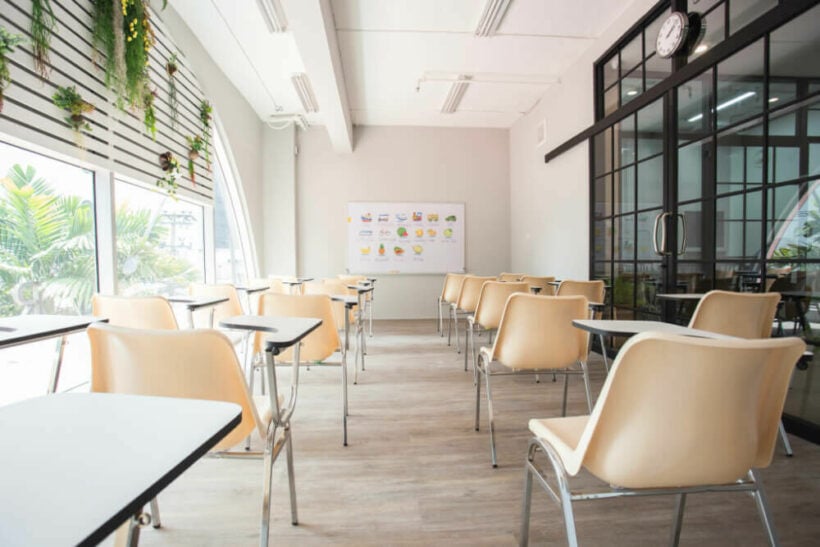Children at Phuket school suffer food poisoning from drinking water

Children at a school in Phuket’s main city district went down with a heavy dose of food poisoning on August 19, according to the school’s director. The Darasamuth Phuket School’s director released a statement about the incident yesterday (Wednesday), saying the problem had been due to the school’s water system.
The director, Dararat Pengpinit, said that “some” students had become sick on August 19, suffering from diarrhea and food poisoning. After samples from the school’s food and drinking water were sent in for lab testing, coliform bacteria was found in the water.
Dararat said…
“The UV steriliser equipment used for disinfection had been damaged, resulting in unsterilised water supplied to schools, causing coliform bacteria to contaminate the water.”
Coliform bacteria are organisms found in the feces of all warm blooded animals, including humans.
Dararat apologised for the incident on behalf of the school, which has since worked with public health officials, Wichit Municipality, and a local hospital to fix the problem. She said the company that was in charge of the school’s water system has now replaced the UV steriliser lams, and thoroughly inspected the system. Dararat stressed that the water quality will continue to be monitored.
This news comes after a popular waterfall in Chiang Mai was found to be brimming with E.coli bacteria just last month. An award winning doctor from Chiang Mai university said that a temple higher up on the Doi Suthep mountain gets tens of thousands of visitors every day, and there is no proper waste management system, so sewage is dumped into natural waterways.
Hopefully, Thailand can one day prevent problems with coliform in its water, so that incidents like the recent ones in Phuket and Chiang Mai will no longer happen.
Some people can become infected with E.coli without showing symptoms, but some people can show symptoms for up to two weeks. If you show symptoms of E.coli infection, it is advised to drink plenty of fluids. There is currently no treatment for E.coli, but in most cases, it is possible to recover at home without treatment.
Infections are more dangerous in young children, so if you suspect your child has an E.coli infection it is advised to call a doctor right away. Antibiotics and anti-diarrhoea drugs such as loperamide are not advised.
SOURCE: The Phuket News
Latest Thailand News
Follow The Thaiger on Google News:


























